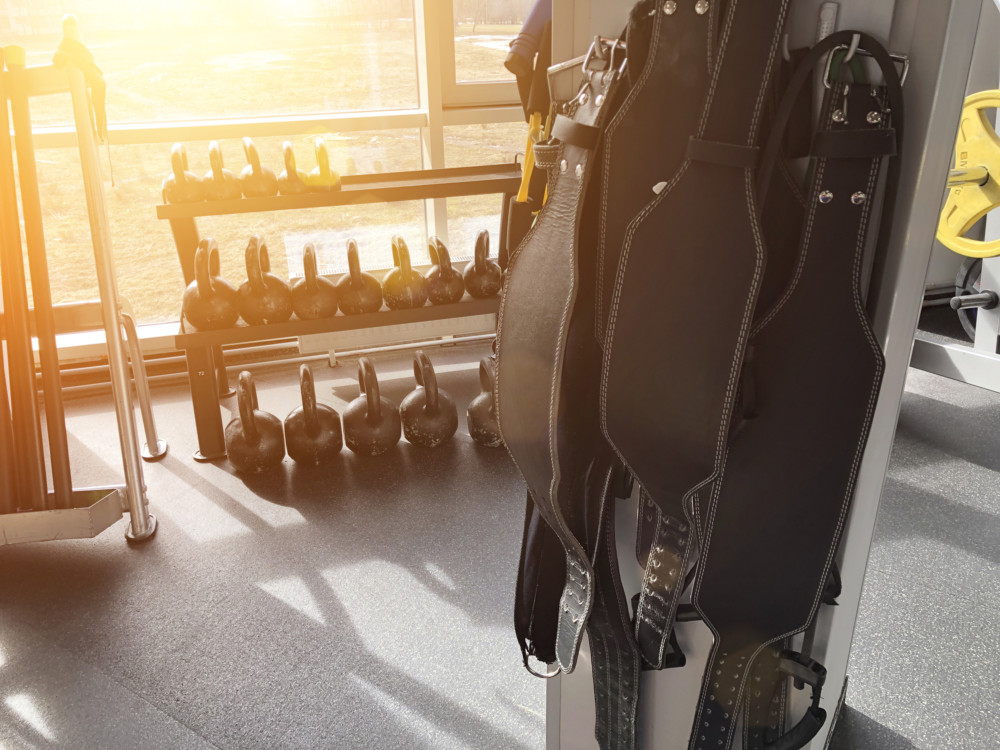By Martha Ross
The Mercury News
WWR Article Summary (tl;dr) Smaller fitness class sizes and marked off “pods” which are basically socially distanced squares are some of the new features at one newly reopened gym.
San Jose
Katalin vonBerg sweated through repetitions of burpees, squats and reverse push-ups Monday, and she couldn’t have been happier.
VonBerg was back at one of the popular cardio classes at the Bay Club in Walnut Creek, Calif., three months after the COVID-19 pandemic forced gyms to close throughout the Bay Area. VonBerg attended the class under new and unprecedented conditions, which other fitness enthusiasts will soon encounter when they return to gyms that have started to reopen.
To enter the club, the Walnut Creek resident needed to don a mask and have her temperature checked, one of the measures gyms are using to prevent coronavirus outbreaks. Her class took place outside near the pool, with Contra Costa County not allowing indoor workouts until July 1. The club also encouraged vonBerg and her classmates to practice social distancing by having them move only within “pods,” 10-by-10-foot squares marked by tape.
With the pods, vonBerg could forgo a mask as she breathed heavily on a balmy summer morning. But the social distancing also keeps the class to 15 people, down from the usual 30. The lower-class-size meant vonBerg had to get online a day or two ahead to reserve a spot. Indeed, reservations for classes, lap swimming and weight-room sessions will be the new normal at gyms around the Bay Area.
“I think many members were excited to come back,” said vonBerg, who with her husband has been a longtime member of Bay Club. “It’s been hard to book classes in this COVID era. The funny thing is, once you’re able to make a reservation, it’s like a VIP experience. You have your own space.”
Social distancing, no showers initially, pods around classes and exercise machines and ubiquitous bottles of sanitizers and disinfectants: These are among the features of fitness clubs during a pandemic that already had infected more than 20,000 people in the Bay Area and killed 539 as of Monday.
While the number of cases continues to grow in the Bay Area, public health officials in Contra Costa and San Mateo have given gyms the go-head to reopen, even if the facilities are known as “high-touch.” Other counties have been more cautious about gyms reopening, with Santa Clara, Alameda and San Francisco counties only allowing people to use outdoor pools or exercise areas.
San Mateo County Supervisor David J. Canepa said that officials are dealing with a “balancing act” between preserving public health and kickstarting local economies. There is no question that COVID-19 has struck a major blow to the $34 billion-a-year U.S. fitness industry, which is made up of more than 38,000 clubs and studios. Of the gyms that closed under shelter-in-place orders, up to 30% may not reopen, with about a third of members saying they planned to cancel memberships, according to a survey by investment bank Harrison Co.
San Ramon-based chain 24-Hour Fitness was forced to close 13 clubs in the Bay Area and 100 nationwide as part of its filing for Chapter 11 bankruptcy protection. Still, 24-Hour Fitness has begun reopening some remaining Bay Area clubs, instituting a reservation system for 60-minute workout sessions throughout the day, followed by 30 minutes of cleaning between sessions, said spokeswoman Karen Bakula.
Robert Jackson, owner of Forma Gyms in San Jose and Walnut Creek, said some people canceled memberships due to job losses or other financial hardships, while others said they didn’t want to return until there is a COVID-19 vaccine. He estimates his business could be down as much as 25 percent. Strict limits on the number of people in the gyms at one time also could pose a challenge.
At the same time, Jackson said gyms can play an important role in helping the public stay healthy in the midst of a health crisis. He noted that people with underlying health conditions, including obesity, have been at a higher risk for complications from COVID-19. “As the industry shifts, we have to be part of the solution,” he said.
Like other clubs, Forma Gyms requires digital check-ins that should help with contact tracing if “God forbid” a member tests positive for COVID-19, Jackson said.
buy bactroban generic buy bactroban online no prescription
Meanwhile, his San Jose gym will continue to hold classes outdoors in a covered 50,000-square-foot workout area throughout the summer, while the Walnut Creek club has similarly moved activities outdoors to a 100-by-40 foot tent erected in the parking lot.
Elias Mandilaras, a senior vice president for Walnut Creek’s Bay Club, said outdoor classes also would continue through October, even as employees prepped the 40,000-square-foot fitness floor for the July 1 reopening by marking out “pods” around exercise machines. These pods also have been marked out at Bay Clubs in San Jose, Santa Clara, Fremont, Pleasanton, San Francisco and on the Peninsula.
Mandilaras said the club didn’t lose as many members as officials feared. Some members took advantage of discounts or virtual classes. The company also has started receiving calls from prospective new members, Mandilaras said. “They’ve been stuck at home and want to get out,” he said.
VonBerg said she feels safe with measures Bay Club has put in place and is glad to be back in classes where teachers always encourage her to push a little harder.
Ann Affinito, vonBerg’s teacher for Monday’s class, said older students with medical conditions expressed wariness about returning to the club. But others long to return to some semblance of old routines, she said. “They miss the camaraderie of classes,” she said. “This is a social club, and they missed their fitness family.”
___
Distributed by Tribune Content Agency, LLC.














































































































































































































































































































































































